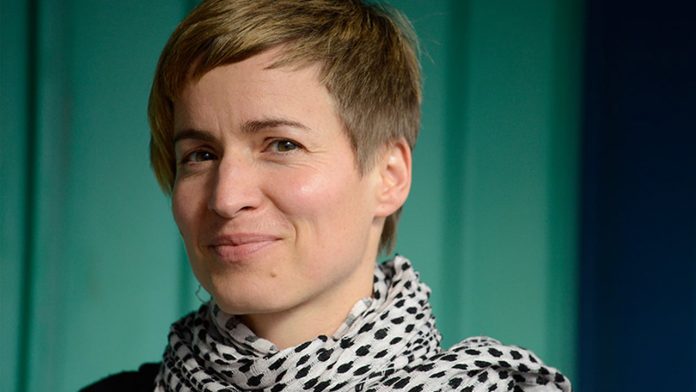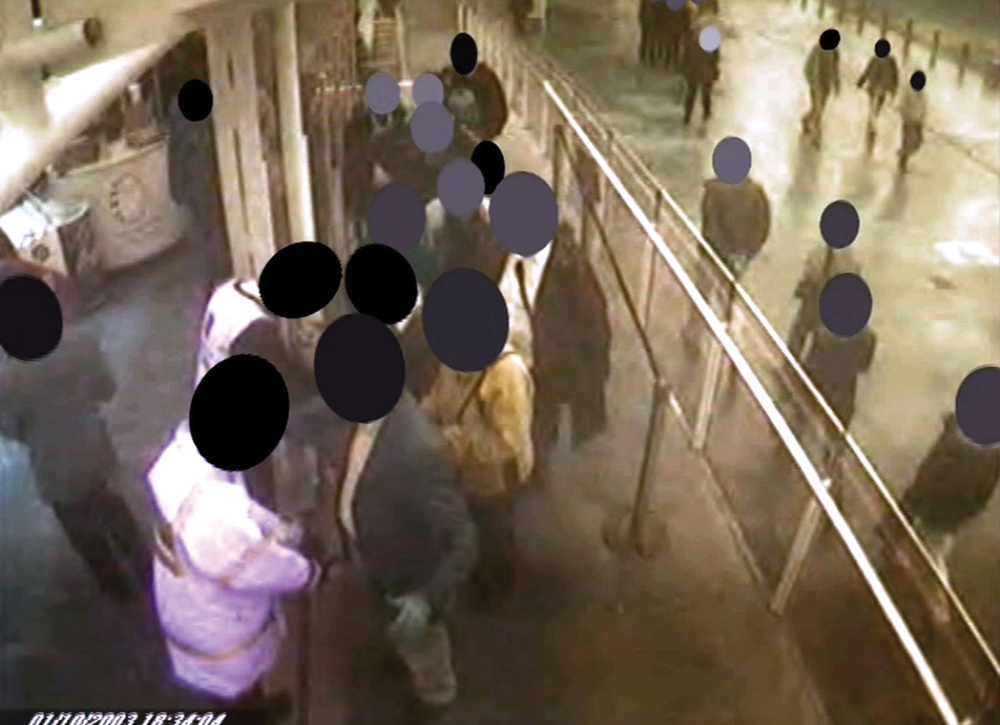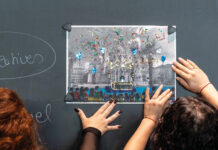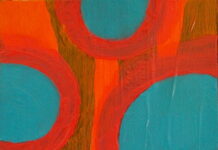
Art controls the controllers
– Filming against surveillance
Manu Luksch is an artist living in Vienna and London whose work is a critical examination of Big Brother, data abuse and the control society. For her film project, “Faceless – Chasing the Data Shadow”,
she used nothing but image material from omnipresent CCTV surveillance cameras, uncovering the oppressive reality of surveillance in our everyday lives.
In London, the city with the highest density of surveillance
cameras worldwide, the activities of any individual citizen are on average captured on camera 300 times a day. Manu Luksch decided to use this surveillance network for her own purposes through artistic means. She took advantage of the British Data Protection Act of 1998, which specifies that a sign must be attached to every surveillance camera installed, and which grants every individual the right to obtain recordings on which they can be seen from the camera operators for a maximum fee of ten pounds. In an ingenious act of artistic aikido, Luskch used this law to transform this oppressive surveillance power into a self-empowering film manifesto. The basic
idea was to use not her own cameras or lights, but only recordings from surveillance cameras. Luksch had to be visible as a protagonist in all sequences, since this was the only way she would have the right to demand the video monitoring material. The sound had to be provided separately, since CCTV cameras are not allowed to record
sound. All that had to be done to supply the film material, therefore, was to send off an application for the issue of the material to the individual operator of each camera directly after the recording was made, by registered post, with a photograph and a cheque for ten pounds.
des Materials zu stellen, Lichtbild und einen Zehn-Pfund-Scheck beizufügen – fertig ist das Filmmaterial.
Art as a medium for designing
alternative models for the future
Manu Luksch took seven years to produce the 50-minute film. Despite the clear legal situation, it was not so easy to gain access to the recordings. Very many of the camera operators ignored requests, made absurd demands, made excuses or referred to disappeared or
defective storage media. The right to obtain a picture of yourself with your face does exist, but it is difficult to assert it. The title of the film, “Faceless”, does not originate from this difficulty in procuring the images, however. It is rather a comment on the current legislation, which demands that on the recordings that are issued, all faces are obscured other than that of the person making the request.

Art as a medium for designing alternative models for the
future, as a means of expressing criticism, such as of the
predetermined nature of public space and the banishment of the individual from it, are core themes in the work of Manu Luksch, who repeatedly attracts attention with her projects. In her work, Luksch takes a critical look at smart city technologies. Recently, there has been a strong drive in the industry to develop concepts that seek to cover the public space not only with cameras, but also with networks of different sensors, which constantly measure what is on the move, and how and where. The data collected can cover anything from wastewater volumes to flows of people.
According to these concepts, the purpose of real-time
prognosis models based on such data is also to predict where undesirable situations might arise. This data can be used not onlyfor commercial purposes, such as forecasting consumer decisions, but also for personality analyses in order to make predictions about potential unwanted future behaviour based on programmes and algorithms.
In her media projects, Luksch is critical of such efforts. In
order to visualise the potential impact on an open, democratic society and make it possible to imagine them, she “constructs” fictitious people who with their wide range of different patterns of behaviour become the subject of such data analyses. Her aim is to use this form of a speculative scenario to provide space for reflection on
how smart city technologies like these might change and determine our everyday lives. With her project ambienttv.net, she has created an active interface between art, technology and social criticism. The purpose
of Luksch’s work is to uncover the processes and effects of surveillance technologies on people’s daily lives and to present them as a subject for discussion.
Manu Luksch
Filmemacherin und Artivistin
www.manuluksch.com
www.ambienttv.net











